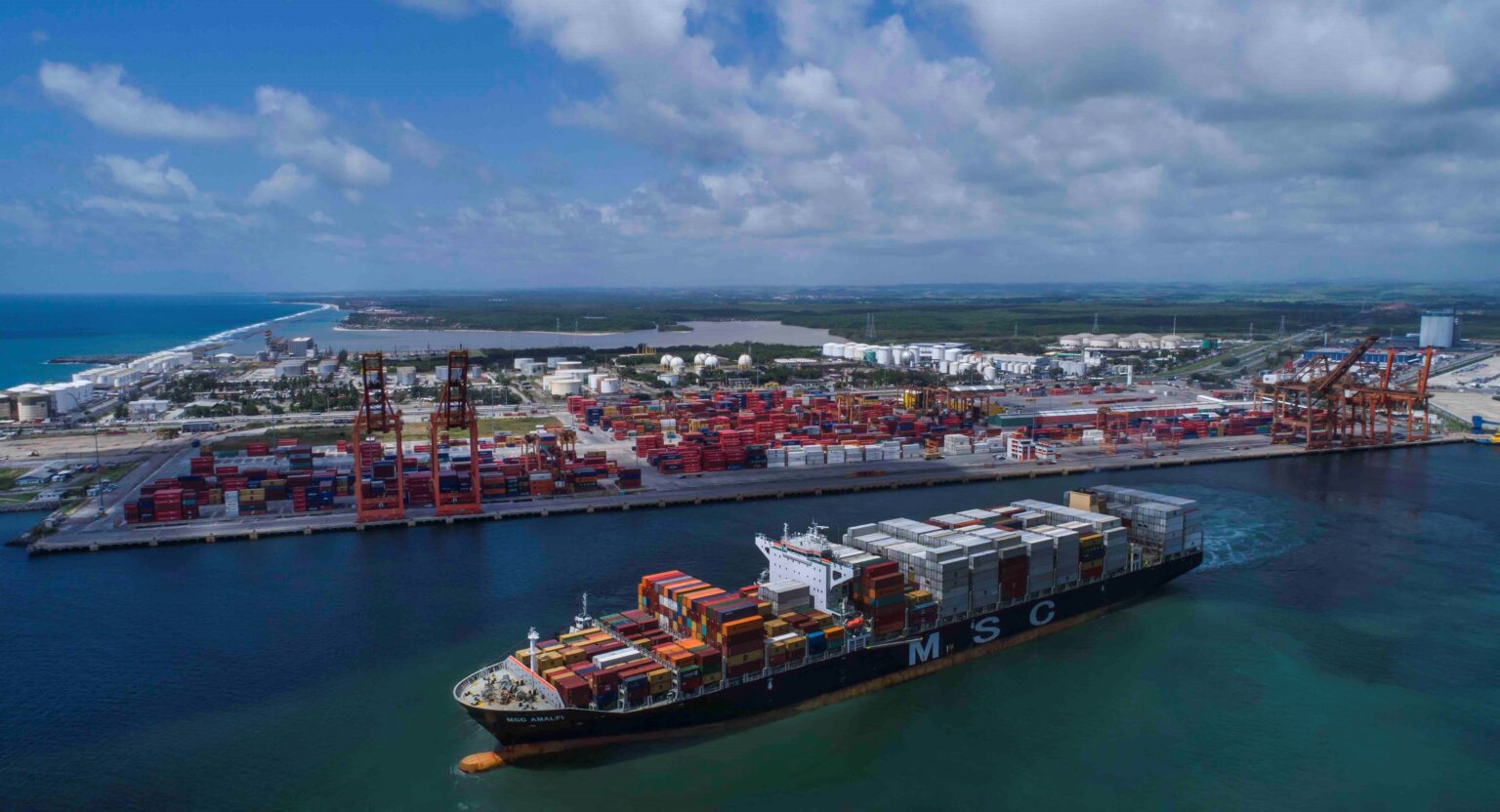
Pernambuco gov’t announces autonomy recovery over Port of Suape operations
Oct, 04, 2022 Posted by Gabriel MalheirosWeek 202240
The Government of Pernambuco announced, on Monday, October 3, increased autonomy over aspects of the management of the Port of Suape. The information was disclosed following the publication of Brazil’s Official Gazette, signed by the Ministry of Infrastructure. The document clarifies which attributions belong to the state of Pernambuco and which belong to the federal government.
The decision provides that the country’s port policy and planning are the federal government’s responsibility. At the same time, the operation of wharves and terminals, in addition to the upholding of leasing contracts and tariff collection, should fall under the responsibility of the state port authority.
“With regained autonomy, Suape recovered the competence to conduct studies, prepare tender calls, carry out bidding procedures and execute contracts related to port leases with more agility and less bureaucracy. The Suape complex will also be responsible for approving the expansion and densification of port areas, in addition to early extensions of contracts in force and contractual rebalancings,” points out the director-president of the state-owned port, Roberto Gusmão.
“Such impasse had been dragging on for a while, and Suape had been struggling to regain its administrative autonomy. Such a win comes from the Port Authorities Management Index, which proves that port management in Suape has been excellent. This is the most recent link in a chain of goods news published about Suape, and shall continue to be so,” emphasizes the director of Planning and Management of Suape, Francisco Martins.
See below the track record of container exports and imports at the Port of Suape between January 2019 and August 2022. The data is from DataLiner.
Port of Suape | Exports vs. Imports | Jan 2019 – Aug 2022 | TEUs
Source: DataLiner (click here to request a demo)
Know more about the process of withdrawing autonomy from ports
Law 12,815 of June 5, 2013, commonly known as the “Ports Law,” transferred the responsibility of calling on port tenders to the federal sphere, taking away the autonomy of Brazilian public ports such as Suape. Before this law, it was up to the port administration to carry out the concession processes. However, the new legislation gave Antaq (National Waterway Transportation Agency) this power per the standards established by the Granting Authority (currently the Ministry of Infrastructure). Public ports suffered from the centralization of all procedures and decisions regarding concessions and leases of port areas within federal agencies. There was no bidding process from 2013 to 2016.
In March 2017, the Ministry of Transport created a Working Group to define procedures for delegating powers to organized ports. In November of that same year, the many ports presented a proposal aimed at clarifying which standards would make ports eligible for regaining autonomy, including financial standards, transparency, and adherence to Antaq standards, among others. The ports of Suape, São Sebastião, Santos, Itaqui, and Paranaguá took the lead on this proposal. The WG finished the work in December 2017.
In 2018, the then Ministry of Transport, Ports and Civil Aviation – currently the Ministry of Infrastructure – launched Ordinance 574/2018 to regulate a provision contained in paragraph 5 of art. 6 of Law 12,815/2013, which allows the transfer of the preparation of the action notice and execution of bidding procedures to the port administration, delegated or not.
The Port Authorities Management Index (IGAP) was devised, stipulating the delegation of authority to bid, contract, and inspect arrangements to those port managements based on condensed indicator levels to be achieved based on some indispensable requirements.
-
Shipping
Jan, 13, 2025
0
Maersk revises peak season surcharge from Far East to East Coast of South America
-
Fruit
Apr, 30, 2024
0
Morocco gains access to Brazilian market for citrus exports
-
Automotive
Jul, 12, 2022
0
Brazil: Motor vehicle exports climb 23% in the 1st semester of 2022
-
Grains
Nov, 25, 2022
0
Argentina to revive ‘soy dollar’ fx rate until year-end, source says

